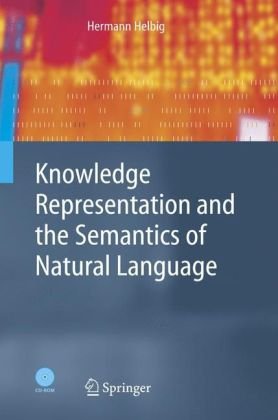

Most ebook files are in PDF format, so you can easily read them using various software such as Foxit Reader or directly on the Google Chrome browser.
Some ebook files are released by publishers in other formats such as .awz, .mobi, .epub, .fb2, etc. You may need to install specific software to read these formats on mobile/PC, such as Calibre.
Please read the tutorial at this link: https://ebookbell.com/faq
We offer FREE conversion to the popular formats you request; however, this may take some time. Therefore, right after payment, please email us, and we will try to provide the service as quickly as possible.
For some exceptional file formats or broken links (if any), please refrain from opening any disputes. Instead, email us first, and we will try to assist within a maximum of 6 hours.
EbookBell Team

4.1
20 reviewsPart I deals with fundamental problems of semantic knowledge representation and semantic interpretation of natural language phenomena. Part II provides a systematic description of the representational means of MultiNet, one of the most comprehensive and thoroughly specified collections of relations and functions used in real NLP applications.
MultiNet is embedded into a system of software tools comprising a workbench for the knowledge engineer, a semantic interpreter translating natural language expressions into formal meaning structures, and a workbench for the computer lexicographer. The book has been used for courses in artificial intelligence at several universities and is one of the cornerstones for teaching computational linguistics in a virtual electronic laboratory.